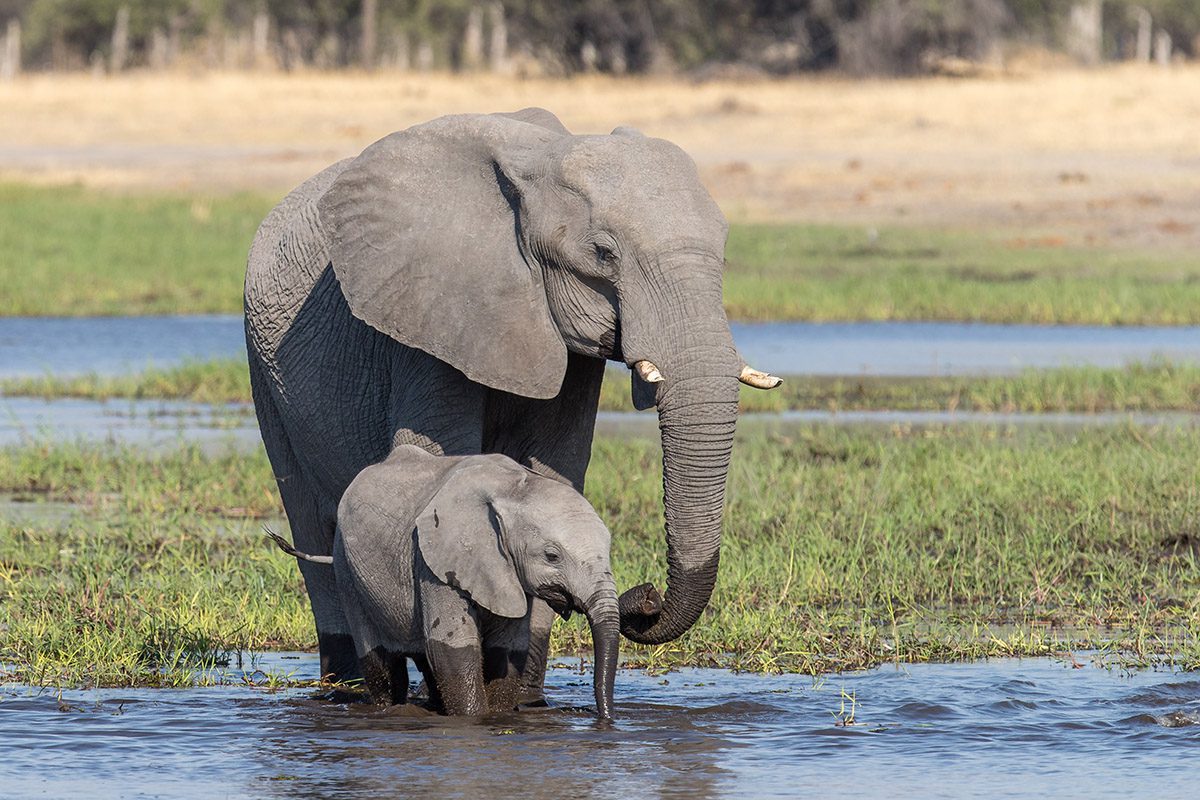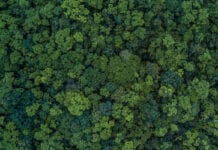
President Dr Mokgweetsi Masisi has announced the re-introduction of elephant hunting across the country, overturning a five-year ban on hunting elephants in Botswana.
As a press release from David Shepherd Wildlife Foundation explains, this shocking news comes after national consultation, launched in advance of elections looming later this year. The dramatic policy U-turn was announced at a multi-Government summit in May, hosted by Botswana’s president, that intended to forge a common position with a handful of Southern African allies for managing their shared elephant population in the Kavango-Zambezi Trans-Frontier Conservation Area (KAZA TFCA).
In addition to the return to trophy hunting, Botswana – along with Namibia, Zimbabwe and South Africa – wants to open up the international trade in ivory, which would be disastrous for elephant populations across Africa. The Africa Elephant Coalition, a group of 32 African states, including the majority of countries where elephants are found, strongly dispute the position of Botswana and its allies around the future trajectory and security of elephant populations. They are calling for an end to all trade in ivory.
Speakers at the KAZA summit characterised Botswana’s key challenge as an exploding elephant population and increasing human-wildlife conflict.
Botswana’s Tourist and Environment minister, Kitso Mokaila, has claimed, without evidence, that Botswana has too many elephants, with populations nearly three times the ecosystem’s “carrying capacity”. According to Mokaila, the shift in environmental policy and the reintroduction of elephant hunting will mitigate human-wildlife conflict, provide benefits to local communities and reduce poaching levels throughout Botswana.
The big question is, does Botswana’s new conservation stance have any merit or is there something larger at play?
According to independent economist Ross Harvey, before the ban was imposed in 2014 “elephant numbers had dropped by 15% in the preceding decade, abuse was prolific and communities were not benefiting from the fees that hunters were paying.” Moreover, hunting can exacerbate human-animal conflict through increased elephant aggression.
It appears that President Masisi’s new doctrine may be driven more by politics and a desire to undermine and reverse that of his predecessor, Ian Khama, a committed conservationist whose environmental policies were aimed at protecting the country’s natural resources from over-exploitation.
Botswana’s move has provoked a backlash in Southern Africa. Critics, including the African Institute for Security Studies, along with Ross Harvey, believe that Masisi’s real objective is to win the rural vote for the ruling Botswana Democratic Party (BDP) in the October elections. Shannon Ebrahim, Foreign Editor of South Africa’s Independent online, condemns President Masisi’s decision, saying “What the Elephant Summit in Kasane was really all about was Masisi convincing the leaders of neighboring countries to back his decision to lift a ban on elephant hunting and to push for the legalization of the ivory trade. The motivation being that Botswana has an impending election in October that is a tight race between Masisi’s ruling party and the opposition”. In protest, Ian Khama has resigned from the BDP, which has ruled Botswana since Independence, and backed the opposition.
Botswana’s move is seen as a backwards shift toward ‘consumptive use’. This is deeply disturbing considering Botswana is home to one third of Africa’s elephants and has been called “Africa’s last stronghold”.
The escalation in elephant poaching following the sale of ivory stockpiles to China and Japan in 2008 demonstrates that trade is not the answer to Africa’s poaching crisis. Botswana’s latest proposal to re-open international ivory trade, submitted to the Convention on International Trade of Endangered Species (CITES), is “playing with fire with Africa’s elephants” said Georgina Lamb, Head of Programmes and Policy from the David Shepherd Wildlife Foundation. “If CITES were to agree the proposal, elephant populations would never recover, including those in Botswana.”
All 28 EU member states oppose any move to reopen the international trade in ivory and many countries are now implementing comprehensive ivory bans to try and curb the illegal poaching of elephants including China and the UK.
The paradoxical policy reversal comes in the wake of a new survey released by conservation group Elephants Without Borders that disputes Mokaila’s claims on Botswana’s elephant population trend.
The 2018 survey estimated a population of 126,114 in northern Botswana, indicating stability NOT growth since 2014, and documented asurge in recent poaching incidents. According to Ross Harvey, “If the country’s not careful, poaching will take root in the same way it has in Tanzania” which lost 60% of its elephant population in just 5 years.
Furthermore, Mokaila’s statement on elephants exceeding environmental carrying capacity is based on opinion and out-dated policy rather than ecological science. An international team, including several researchers from Botswana, who studied elephant and habitat changes concluded in 2004 that Botswana’s Chobe National Park, rather than suffering elephant-induced damage, was “reverting towards a situation somewhat similar to the one before the excessive hunting of elephants” during the colonial-era ivory onslaught of the 18th to 20th centuries.
Losses of crops, property and human life present huge challenges to rural communities sharing elephant habitats. However, there are more factors at play, and more potential solutions, than simply killing elephants for dubious reasons. Conflict needs to be mitigated, for example through a combination of bee-hive, chilli and “smart” electric fences and safe migratory corridors. Coexistence should be strengthened by empowering communities, not through creating market demand for products from endangered species with an uncertain future.
Botswana is at serious risk of losing its conservation reputation. In view of the rising global sentiment against the consumptive use of wildlife products, President Masisi is tempting fate by abandoning precautionary conservation principles, which could lead to the collapse of their second largest economic sector, tourism and threaten elephant populations everywhere.







